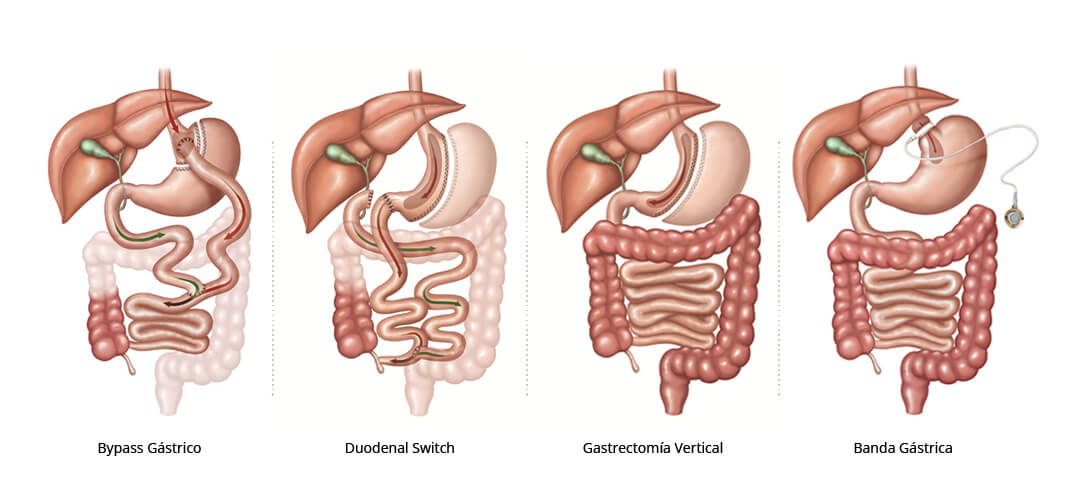
Bariatric surgery
Bariatric surgery for obesity is the one that is carried out with the objective of achieving a gradual and sustained weight loss, therefore improving many medical problems such as high blood pressure, high levels of fat in the blood, joint problems, etc.
Some people believe that obesity surgery is a mutilating surgery, but in reality, it is currently performed by laparoscopic surgery or minimally invasive surgery in the vast majority of cases. It requires 1 to 2 days of hospitalization, and patients return to their usual activities after 7 days. The results are gradual, that is to say that the weight loss is progressive, and the most important thing is that they can be sustained.
There are basically 2 ways in which surgery can produce weight loss, and from which we derive the modern bariatric procedures, which are:
- Restrictive: It consists of restricting the capacity of the stomach, and therefore decreasing the total food intake.
- Derivative:It involves the deviation of the normal transit of food in the organism, through anastomoses (unions) between the intestines and the stomach.
Currently, there are many bariatric procedures, each one has its own advantages and disadvantages, the most studied and commonly performed are:
-
- –> Gastric Sleeve.
-
- –> Gastric Bypass.
-
- –> Switch o Duodenal Switch.
-
- –> SADIS.
-
- –> Gastric Plication.
-
- –> Gastric Banding.
Specialists







